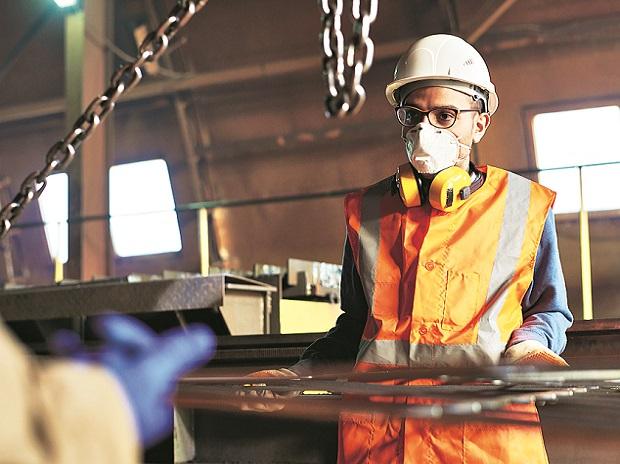21% Startups And MSMEs Benefited From Govt Schemes In 2020: Survey

With economic recovery starting in September 2020 and the uncertainty of new coronavirus strains, the startups and micro, small and medium enterprises (MSMEs) are seeing growth for their business and the necessary funds as the top challenge.
According to a survey by community platform LocalCircles, about 28 per cent small firms posted raising funds or loans as a top challenge. Another 25 per cent are worried about finding growth. There were also 19 per cent firms who said they worry about the survival of their business, and 13 per cent maintained bureaucratic inefficiencies as their top challenge in 2021.
“Only 31 per cent of startups and MSMEs have cash reserves to sustain for more than 3 months,” said the survey.
In LocalCircles’ previous survey, startups and SMEs had voted ‘securing funding’ or loans as their top challenge in 2020. About 21 per cent said that they have benefitted from various Government schemes like Startup India, MSME Samadhan, no or low-interest loans, Make in India and Aatmanirbhar Bharat in the last 12 months. About 68 per cent said “no” to the same question. Around 18 per cent firms in 2018, 20 per cent in 2019, and 21 per cent in 2020 said to have benefited from the various Government programmes.
ALSO READ: Banks sanctioned Rs 2 trn loans to MSMEs for Covid-19 impact, says FM Sitharaman
LocalCircles has been collecting inputs from startups and MSMEs through 2020 to understand and escalate the challenges they faced during the pandemic. In late December, LocalCircles concluded its annual survey, “Pulse of the Startups and MSMEs - 2021 edition.” It received over 20,000 responses from more than 8,000 startups and MSMEs across India to ascertain their current state of affairs, challenges, hiring plan, cash flow and outlook.
About 44 per cent of these small firms plan to hire workers in 2021. Of 2,671 responses, 46 per cent voted for the option “no plan to hire and possibly may even reduce headcount.” There were 26 per cent firms which maintained that they would be hiring 1-5 employees, while 10 per cent were of the opinion that they would hire 20 or more workers.
“About 44 per cent of Startups and MSMEs plan to hire workforce in 2021,” said the survey.
The findings from the latest survey indicated that while most startups and MSMEs expect growth in business in 2021. The majority also expects to put themselves up for sale. About 45 per cent expect growth in their business, however, 42 per cent see stagnation, sale or closure when it comes to seeing what happens to their business in 2021.
ALSO READ: Companies bolster risk handling after a year of bouncers
For many years now, startups and MSMEs have been reeling under the complex burden of India’s difficult taxation policies. As a result, they often seek ground with taxation-friendly countries. About 10 per cent of these firms said they are very seriously considering moving abroad, according to the survey. Another 18 per cent are considering that option but haven’t done any evaluation. Further, the majority of 57 per cent said “no” to the same question.
The survey also asked startups and MSMEs if the Government should consider removing GST (goods and services tax) under reverse charge or services procured from overseas as a boost to Indian Startups and MSMEs. About 73 per cent agreed. The findings of the latest survey as compared to last year indicated that Startups and MSMEs continue to believe that GST under reverse charge should be removed for services procured from overseas.
Business Standard has always strived hard to provide up-to-date information and commentary on developments that are of interest to you and have wider political and economic implications for the country and the world. Your encouragement and constant feedback on how to improve our offering have only made our resolve and commitment to these ideals stronger. Even during these difficult times arising out of Covid-19, we continue to remain committed to keeping you informed and updated with credible news, authoritative views and incisive commentary on topical issues of relevance.
We, however, have a request.
As we battle the economic impact of the pandemic, we need your support even more, so that we can continue to offer you more quality content. Our subscription model has seen an encouraging response from many of you, who have subscribed to our online content. More subscription to our online content can only help us achieve the goals of offering you even better and more relevant content. We believe in free, fair and credible journalism. Your support through more subscriptions can help us practise the journalism to which we are committed.
Support quality journalism and subscribe to Business Standard.
Digital Editor
Stablecoin The Future Of Currency?
The payments system is undergoing a quiet but consequential shift. What was once the exclusive preserve of central banks... Read more
BoE Loosens Capital Rules
The Bank of England has taken a significant step towards easing post-crisis regulation by lowering its estimate of the c... Read more
Monzo Looks For US Banking License
Monzo is preparing a renewed push to secure a US banking licence, four years after abandoning its first attempt when tal... Read more
Crypto Firms Push Into US Banking
America’s cryptocurrency companies are scrambling to secure a foothold in the country’s traditional banking system, ... Read more
Parallel Banking: Stablecoins Are Now Global
Parallel Banking: How Stablecoins Are Building a New Global Payments SystemStablecoins—digital currencies pegged to tr... Read more
JPMorgan Deploys AI Chatbot To Revolutionize Research And Productivity
JPMorgan has deployed an AI-based research analyst chatbot to enhance productivity among its workforce, with approximate... Read more

